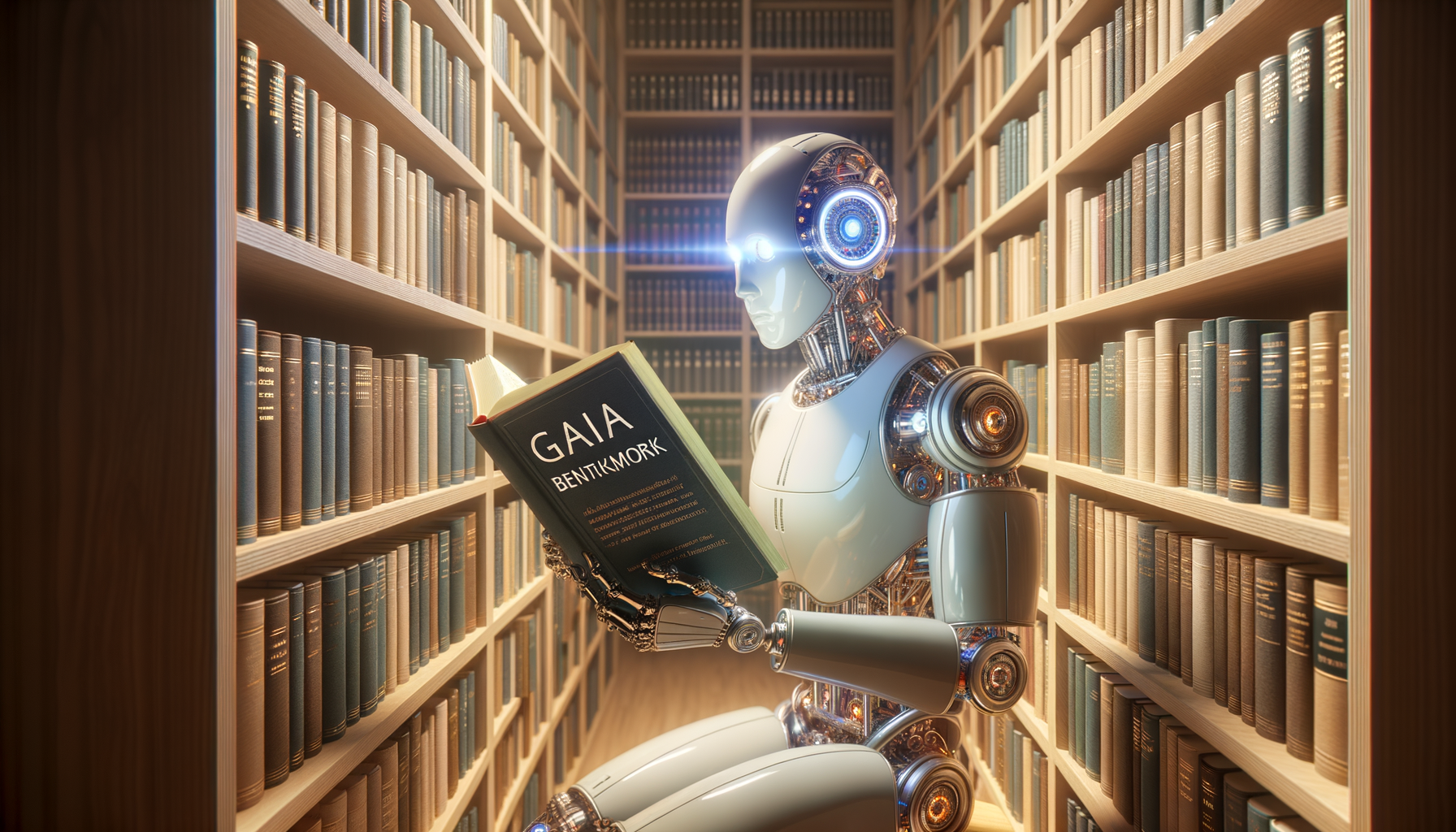
Understanding GAIA: The New AI Benchmark Pushing Chatbots Towards Human-Level Reasoning
In the rapidly evolving world of artificial intelligence, chatbots have become increasingly sophisticated, capable of performing a variety of tasks that range from simple customer service inquiries to complex problem-solving. However, despite the advancements, a significant gap remains between AI reasoning capabilities and human competence. To address this issue, researchers have introduced a new AI benchmark known as GAIA (General AI Assessment), which aims to rigorously test chatbots with real-world reasoning questions. In this blog post, we’ll dive into what GAIA is, why it’s important, and what it reveals about the current state of AI chatbots.
What is GAIA?
GAIA stands for General AI Assessment, a benchmark designed to evaluate the reasoning abilities of AI systems. It consists of 466 questions that are not limited to any specific domain but rather span a variety of real-world scenarios. These questions are carefully crafted to test different types of reasoning, including causal, counterfactual, and commonsense reasoning.
The introduction of GAIA marks a significant step forward in the quest to develop AI that can think and reason at a level comparable to humans. Unlike previous benchmarks that often focused on specific tasks or datasets, GAIA presents a more comprehensive and challenging set of problems that require a deeper understanding and more nuanced responses.
Why is GAIA Important?
As AI continues to integrate into various aspects of daily life, the ability of chatbots to understand and reason through complex problems becomes increasingly critical. GAIA is important because it provides a clearer picture of where AI currently stands in terms of reasoning and highlights the specific areas where improvement is needed.
By pushing the boundaries of what AI can do, GAIA encourages the development of more advanced algorithms and models that can better mimic human thought processes. This, in turn, can lead to more effective and reliable AI systems that can be trusted to handle more sensitive or intricate tasks.
What Does GAIA Reveal About AI Chatbots?
The results of GAIA testing have been eye-opening, revealing that even the most advanced AI chatbots still struggle with many of the reasoning questions posed by the benchmark. While AI can often handle straightforward tasks with relative ease, it becomes apparent that there’s a significant discrepancy when it comes to complex reasoning and understanding context.
Some of the key limitations highlighted by GAIA include:
- Contextual Understanding: AI chatbots often fail to grasp the full context of a situation, leading to responses that may be accurate within a narrow scope but miss the bigger picture.
- Commonsense Reasoning: Chatbots sometimes struggle with questions that require commonsense knowledge, which humans acquire through experience and interaction with the world.
- Causal and Counterfactual Reasoning: Understanding cause and effect or imagining alternative scenarios is still a challenge for AI, limiting its ability to predict outcomes or consider hypothetical situations.
These findings underscore the need for continual improvement in AI chatbot technology. Researchers and developers must focus on creating models that can better understand and process complex information in a manner similar to human reasoning.
Advancing AI Chatbot Capabilities
To advance AI chatbot capabilities, new technologies and approaches are being explored. One such approach is the use of large-scale language models, like OpenAI’s GPT-3, which has demonstrated impressive performance on various language tasks. Books and resources on the subject, such as “Artificial Intelligence: A Guide for Thinking Humans” by Melanie Mitchell, can provide valuable insights into the development of more sophisticated AI systems.
If you’re interested in exploring the world of AI and chatbots further, there are a variety of resources available. For example:
- Books on AI reasoning and chatbot development can be found on Amazon.
- Online courses and tutorials that delve into AI technology and its applications are also widely accessible.
In conclusion, GAIA serves as a powerful tool for benchmarking the reasoning abilities of AI chatbots, providing clear indicators of where improvements are needed. As AI continues to grow and evolve, benchmarks like GAIA will be crucial in guiding research and development towards creating AI systems that can truly think and reason like humans. The quest to bridge the gap between AI and human competence is ongoing, and with resources and dedication, the future of AI chatbots looks promising.